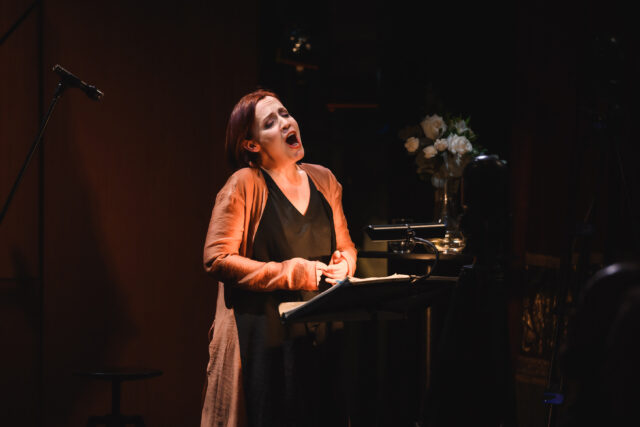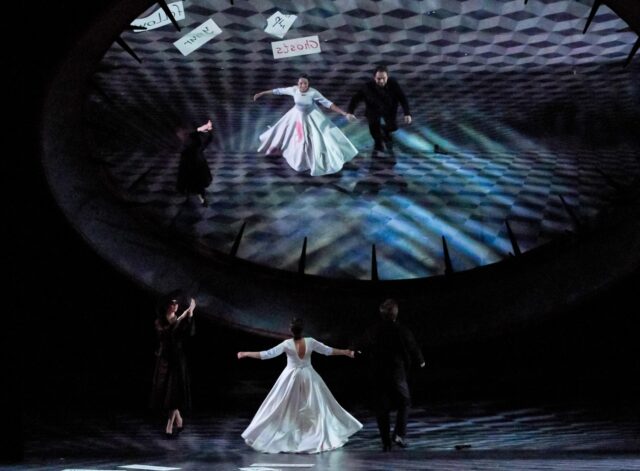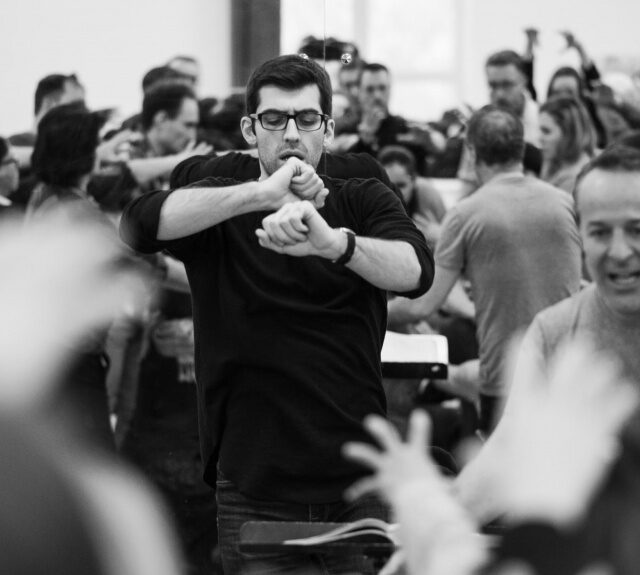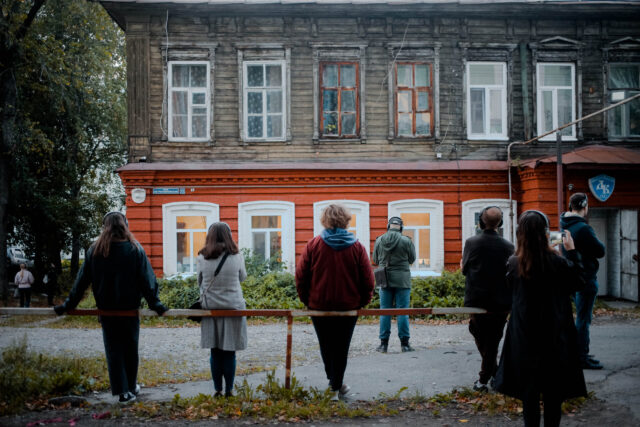The Musical Director of the Perm Opera and Ballet Theatre, Teodor Currentzis, holds the record for the most Golden Mask award nominations.
And that is a fair reflection – only the Bolshoi Theatre in Moscow and the Mariinsky Theatre in St. Petersburg can compete in terms of the intensity of their creative breakthroughs. We do not yet know who will prevail: the capitals or the provinces.
In the opera category, St. Petersburg, which has tended to lead the pack at the Golden Masks in recent years, has this year taken a back seat. The exception to this is the success of the all-singing, all-dancing Les Contes d’Hoffmann at the Mariinsky Theatre, in which, it must be said, Ildar Abdrazakov’s bass parts are truly excellent. Against this backdrop, of course, Moscow is to be congratulated, with six productions nominated! That has not happened for a while. However, it must be acknowledged that scandal propelled at least three of these to the forefront – the brothel scenes in the Bolshoi’s Ruslan and Lyudmila, the suspicions of paedophilic motifs in the Stanislavsky and Nemirovich-Danchenko Moscow Music Theatre’s production of A Midsummer Night’s Dream, and Helikon-Opera’s Das Liebesverbot, which successfully parodied the conflict with preservation group Arkhnadzor over the renovation of the theatre building. Nevertheless, the scandalous circumstances do not detract from the virtues, for instance, of the vocal and acting work of international opera star Albina Shagimuratova (Lyudmila in Ruslan) or the work of the entire production team on A Midsummer Night’s Dream, which staged Britten’s uniquely complex and beautiful music admirably.
But I would like to concentrate on the success of Russia’s regions, or, to be precise, region; for this time neither Siberia nor the large cities in the Volga region saw success (aside from Astrakhan’s The Queen of Spades). It was the Urals – Perm and Ekaterinburg – that carried the can for everyone else. And in some style! Only one conductor, Teodor Currentzis, has been nominated twice – for his historical reconstruction of Mozart’s Cosi Fan Tutte (with full period orchestra, including gut strings on the violins and authentic trumpets and horns without valves), and for the avant-garde sonorist ritual drama Medeamaterial by contemporary composer Pascal Dusapin. Currentzis has also been recognized in the ballet category – for Stravinsky’s Les Noces and the first Russian production of Prokofiev’s The Jester, 90 years after it premiered in Paris. If none of these nominations turn into an award, it will be as telling as the scandalous fact that this marvellous conductor and torch-bearer, who has worked in Russia for a decade and a half, has not been granted Russian citizenship (see Trud, 22.03.2013).
I would perhaps relinquish just one of the conducting awards to Pavel Klinichev, who put together a great selection of performers for the Ekaterinburg production of Le comte Ory, one of Rossini’s most rounded and virtuosic operas.
In the ballet section, I suspect, there is little doubt about the result: few performers can compete with Diana Vishneva, who presented her own programme of the single-act Dialogues (although there is also Yekaterina Kondaurova in A Midsummer Night’s Dream at the Mariinsky Theatre, and Erika Mikirticheva in La Sylphide at the Stanislavsky and Nemirovich-Danchenko Moscow Music Theatre). And if Boris Eifman’s latest mass-market production, Rodin, a deadly boring work in a 1960s dramatic ballet style, is preferred over the work of talented ballet master Anželika Cholina in Anna Karenina at the Vakhtangov Theatre or The Cuckoos, the simultaneously witty, happy, and sad story of female complexes by the St. Petersburg company Kannon Dance, this will seriously call into question the independence of the festival’s jury.
It would be impossible to mention all of the festival’s highlights – there is Maxim Dunaevsky’s musical Scarlet Sails, performed at two theatres simultaneously (Theatre-Theatre in Perm and the Globus in Novosibirsk), and the cheerful, not to mention timely (just in time for the spring floods), performance of Mermaid Sveta from Peremilovo Village by the Kukolny Format Theatre in St. Petersburg and the Yaroslavl Puppet Theatre. The work is based on paintings by primitivist artist Vladimir Lyubarov, to which the producers cleverly gave a practical meaning – these are clearly instructions on what to do in case of flooding…
To summarize, this year’s festival was one of the strongest in the history of the Golden Masks. The fact alone that there was space in the programme for the legendary piece Stifter’s Dinge – the glorious fantasy work by celebrated German musician and conductor Heiner Goebbels for five self-playing grand pianos, a swimming pool full of water, and video projections, to the music of Bach and the sceptical texts of the nineteenth century Austrian poet Adalbert Stifter – would be enough to justify any festival.
Sergey Biryukov



